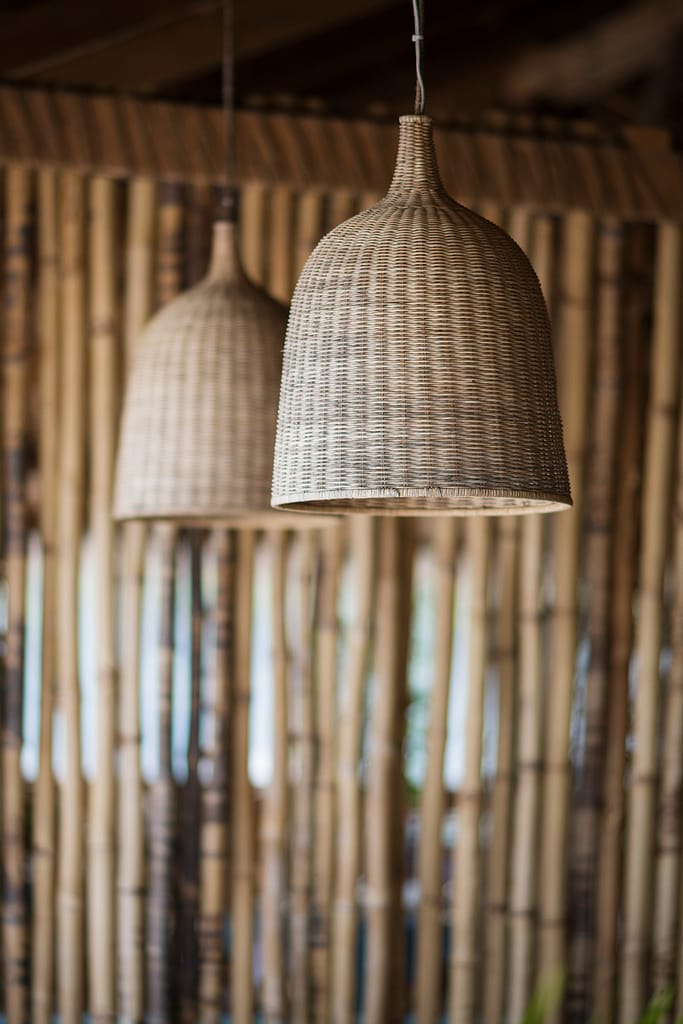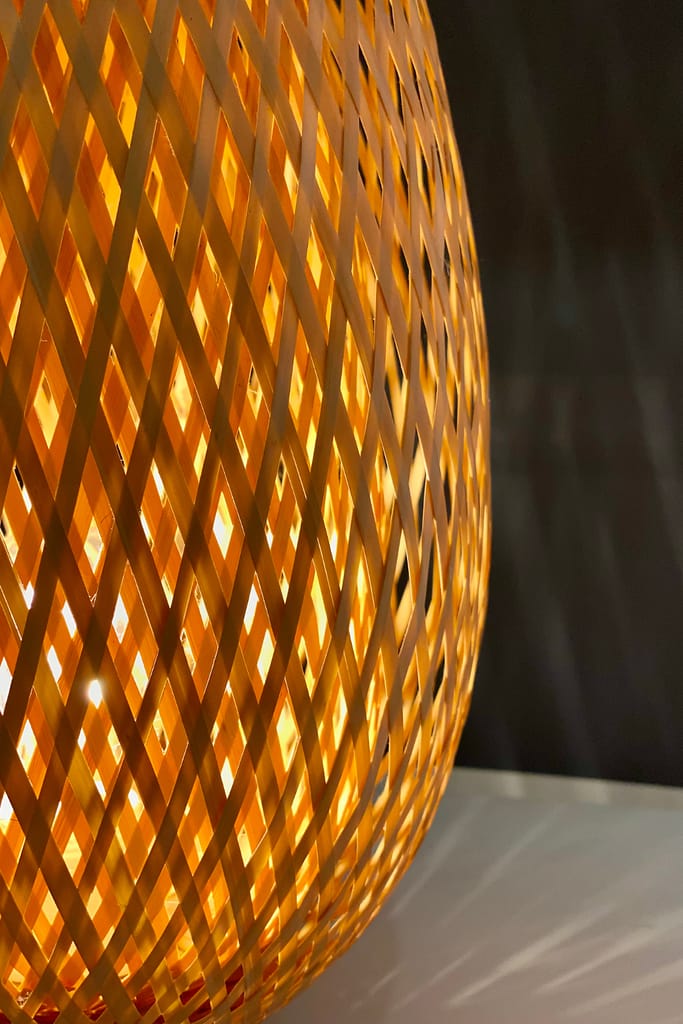Last Updated on June 23, 2025 by Tanya Janse van Rensburg
Lately, there has been a growing interest in home decor as people look for ways to be more environmentally conscious and reduce their impact on the planet's health.
The focus has shifted towards lighting fixtures, like lampshades, where using eco materials brightens living spaces and supports a greener environment.
This article examines choices to show how making stylish decisions can be compatible with being environmentally aware.



Opting for paper for lampshades presents an eco-conscious choice to adorn living spaces with artistic charm through the distinct textures and patterns it offers.
The lightweight quality of paper simplifies the crafting process and caters well to the preferences of DIY enthusiasts.
Additionally, using recycled materials helps reduce waste by steering it away from landfills, showing consideration for environmentally conscious decorators.
One notable feature of bamboo is its renewal cycle. This has led to its increasing use in eco-friendly design practices.
Because of its durability and flexibility, bamboo proves to be an option for lampshades.
Bamboo lampshades bring about a classy vibe that suits interior styles ranging from modern to classic.
The fact that bamboo grows rapidly with resources adds to its eco-appeal and sustainability credentials.
Using cork for lampshades is an environmentally friendly choice as it comes from the bark of cork oak trees.
Which is sustainable and unique due to its natural insulation properties, which help keep spaces cool while being lightweight.
Its unique texture adds a natural element to any environment without harming the trees during harvesting.
Organic cotton is a choice for making lampshades as it offers an eco-friendly fabric that promotes environmental awareness!
By growing without pesticides and supporting ecosystems in the process, organic cotton ensures that the lampshades are sustainable and come in a wide range of colors and designs to suit any decor style seamlessly.
Additionally, the natural fibers of cotton allow for light diffusion, resulting in a welcoming ambiance.
The climbing palm plant, rattan, adds charm to lampshades with its look and feel.
Renowned for its strength and adaptability, rattan can be crafted into designs highlighting artistry and fashion.
This plant flourishes in climates with the need for human interference in its growth, making it an environmentally conscious choice.
Shades can create a welcoming ambiance in homes while supporting sustainable practices.
Stylish paper lamp shades made from hemp are a choice for those looking for a durable and stylish eco option!
Hemp's natural strength means these lampshades can withstand use and still look great in any room decor scheme with their colors.
Using wood from structures and furniture adds a classic and rustic charm to lampshades while contributing to environmental sustainability by reducing the need for new timber and promoting forest conservation efforts to minimize waste generation.
Every piece of wood carries a story that brings character and history into a living space.
This eco-friendly option elevates design and reflects a commitment to values such as conservation and responsible resource utilization.
Using glass for lighting is a sustainable choice that adds a modern flair to your decor while helping the environment.
By repurposing discarded glass into attractive lampshades rather than letting it fill up landfills and reducing the need for new materials.



When you opt for eco lampshade materials, like recycled paper or bamboo, or traditional options, like plastic or metal parts, for your home lighting fixtures, you add a touch of style and effortlessly show your commitment to sustainability.
Various choices exist in the market, such as cork-based designs or lampshades made from cotton or hemp, which look beautiful in your living space and help preserve the environment.
By choosing these materials for your home decor needs, you are not just improving the appearance of your interiors but also taking a conscious step towards caring for our planet and ensuring its well-being.